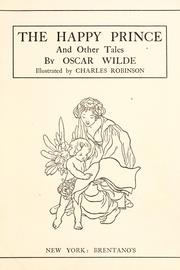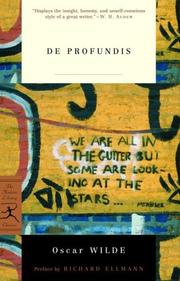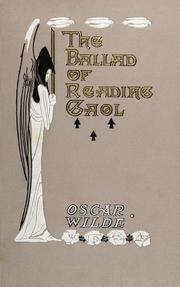Seven Essential Oscar Wilde Texts

A celebrated 19th century Irish writer, Oscar Wilde’s poems, stories, and plays, have earned him dedicated fans the world over. During his own era he was one of London‘s most popular playwrights, and today his most famous works remain household names. Remembered as much for his imprisonment for homosexuality and early death, as for his literary talent, Wilde cuts a fascinating figure, and his work still inspires millions in the UK, Europe, and world today.
The Picture of Dorian Gray

A complete failure during its time, Wilde’s only novel, The Picture of Dorian Gray, was published in 1890. Only many years later did audiences come to appreciate the work as a cutting attack on contemporary social values. Saturated by his famous wit and satire, the novel focuses on themes of extravagance, immorality, and beauty. The narrative is based around the Faustian concept of a young man selling his soul in exchange for eternal youth. As a portrait of the young man withers and fades, his own beauty is preserved in all its glory. The novel raises a whole host of vital questions such as the value of art for art’s sake and society’s vanity. A typically Wildeian epigram from the novel goes: ‘The only way to get rid of temptation is to yield to it’.
The Importance of Being Earnest

Wilde was a more prolific writer of drama. The social comedy, The Importance of Being Earnest, is widely considered to be the writer’s greatest masterpiece. The play’s protagonists attempt to escape the burden of their social duties by adopting fake personae with baffling and amusing consequences. Praised for its dazzling humor, the play also acts as a fantastic social satire, treating with triviality everything that Victorian society held most dear. The wit with which recognizable character types and familiar displays of human error are portrayed explain the play’s eternal appeal. The popularity of the 2002 film adaption, starring Colin Firth and Reese Witherspoon, is proof of the fact that Wilde remains as significant today as ever.
The Happy Prince and Other Tales

Published in 1888, this collection of five short stories, including famous favorites such as The Happy Prince and The Selfish Giant, presents a very different side of Wilde’s writing. Aimed at children, these tales of brave animals and noble princes may seem whimsical but don’t let that fool you. Each delicately crafted story hides a crucial moral message and universal themes such as selfishness, greed, and pride. The tragic ending of The Nightingale and the Rose, for instance, acts as a deep criticism of human avarice and questions the ideal of true love. Surprisingly profound, and exquisitely written, Wilde’s talent shines through in every page, in every carefully chosen word.
Salome

Another of Wilde’s most celebrated works is his tragedy, Salome, published in 1891 and originally written in French. Devoid of his usual wit and humour, this play is instead saturated by hauntingly poetic description and imagery. It recounts the biblical tale of Salome, step-daughter of King Herod, who morbidly requests the head of John the Baptist on a platter. Wilde’s compelling descriptions illustrate both the glorious highs and the pitiless lows which humanity can reach, and everything human emotion is capable of.
Lady Windermere’s Fan

Lady Windemere’s Fan, first performed in 1892, bitingly satirizes the morality of Victorian Britain, with hilarious results. Centered around a supposed affair between Lady Windemere’s husband and a character called Mrs Erlynne, the play deals with basic and relatable concepts such as family relations, love, and morality. The play provides excellent juxtaposition of the comic and the serious, ensuring that the ideas it presents pack real impact. The significance of these themes still resonates today, ensuring that Wilde remains perpetually relevant. One of the play’s most famous quotes goes: ‘We are all in the gutter, but some of us are looking at the stars’.
De Profundis

For Wilde fans wishing to explore the story behind the icon, De Profundis, a long letter written by Wilde during his time of imprisonment, is a must-read. Convicted of indecency for his homosexual activities, Wilde was sentenced to two years of hard labor. Its title means ‘from the depths’, and its contents recounts both his relationship with Lord Alfred Douglas (to whom the letter is addressed) and the lavish lifestyle which led to his conviction. Published in 1905, the letter, with its dark tone and harrowing tales, provides stark contrast to Wilde’s former philosophy of pleasure.
The Ballad of Reading Gaol

Upon his release from prison, Wilde left Britain and Ireland, never to return to either. In his newly adopted motherland of France, he wrote The Ballad of Reading Gaol, his final work. This 1898 extended poem describes, in moving detail, the brutality of prison life and the depths of his suffering during this time. A few short years later Wilde died at the mere age of 46, destitute. This ballad is a highly moving account on the injustice of life and the horror of the prison system, and marks the tragic decline of one of literature’s greatest heroes.
Marianna is a languages student and travel blogger with an eye for the unusual, a heart for exploration, a stomach for food adventures, and a penchant for a pun. Visit her blog, A Hunt Around Russia, to discover more.
amzn_assoc_placement = “adunit0”;
amzn_assoc_enable_interest_ads = “false”;
amzn_assoc_tracking_id = “thecultri-20”;
amzn_assoc_ad_mode = “auto”;
amzn_assoc_ad_type = “smart”;
amzn_assoc_marketplace = “amazon”;
amzn_assoc_region = “US”;
amzn_assoc_linkid = “d6243c4cb3434dd18e6babad31bd9f38”;
amzn_assoc_emphasize_categories = “283155”;
amzn_assoc_rows = “1”;













